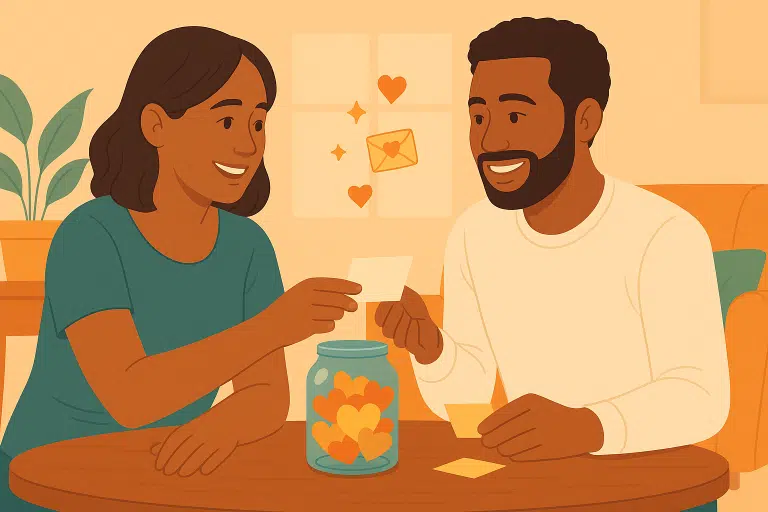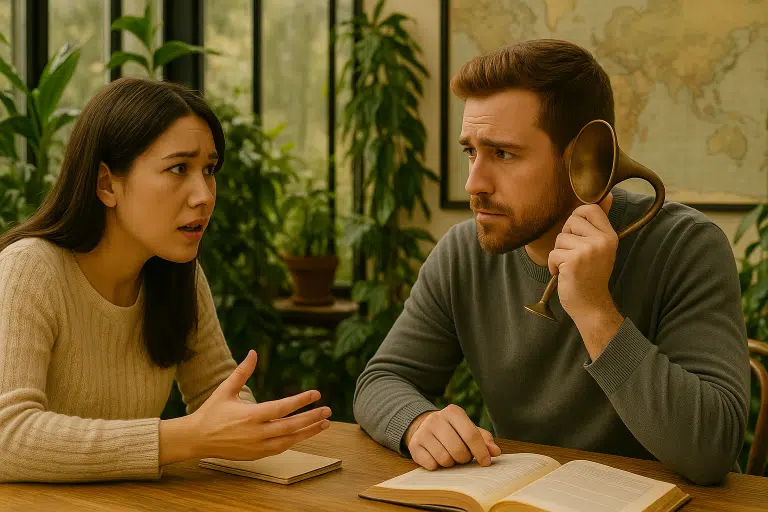Conflict is a natural part of any relationship, and it’s how couples handle and resolve their conflicts that can make a significant difference in the health and longevity of their partnership. While conflict can be uncomfortable and challenging, approaching it with a healthy mindset and effective communication strategies can lead to deeper understanding, growth, and strengthened connection.
Throughout this article, we will explore several key principles and practical steps that couples can take to resolve conflict in a healthy and productive manner when it arises.
Embrace Open Communication
Effective communication creates a solid foundation for resolving conflicts quickly and effectively. Couples should work toward constructing an environment where both partners feel safe with one another at all times and they are encouraged to express their thoughts, emotions, and concerns openly. When we create an environment where we both feel safe, this means we are both actively listening to one another without interrupting or dismissing one another’s feelings. We create a safe space by avoiding blame and judgment towards others. It is crucial in fostering a safe and open space for productive open discussions.
Choose the Right Time and Place
When it comes to addressing the conflicts that arise in our lives, ensuring correct timing and appropriate location is important. Avoid engaging in serious discussions when both partners are tired, stressed, or distracted during conflicts as it is unlikely to lead to a successful resolution. An appropriate setting where we can feel comfortable being emotionally available and provide one another with our full attention – this is usually a neutral setting that is private where you can have a conversation fully uninterrupted.
Practice Active Listening
Active listening involves not only hearing the words that your partner is saying, but also trying to comprehend the fundamental sentiments and requirements of your partner. Couples must avoid engaging in serious discussions when both partners are tired, stressed, or distracted as these situations are unlikely to lead to a successful resolution. When you are able to reflect back to your partner and paraphrase or summarize your partner’s perspective to ensure you have a clear understanding before sharing your own thoughts.

Use “I” Statements
The use of “I” statements to solve arguments can be a powerful difference between conflict resolution and the continuation of conflict. When expressing your concerns or frustrations, it is very helpful to use “I” statements instead of “you” statements as it helps us to avoid sounding accusatory or confrontational with our partners. Just as an example, it can be helpful to say, “I feel hurt when…” instead of “you always do…” This approach really places a focus on your own feelings and experiences, which can allow your partner to better understand how you are feeling from your personal perspective, without becoming defensive.
Practice Empathy
Empathy is the ability to assure others that we understand them and have the ability to share the feelings of another person. Having the ability to place yourself in the shoes of your partner where you are genuinely attempting to see the situation from their perspective. Empathy can include validating our partner’s emotions, even if we do not fully agree with their point of view. By displaying empathy, we are ultimately creating an air of mutual understanding and respect, which generally supports us in finding common ground and resolving conflicts.
Take Responsibility
One piece of conflict resolution that is often quite difficult for us, but is also essential in resolving issues, is taking responsibility for our actions. It is essential to take responsibility for our own actions, words, and contributions to the conflict. Ultimately when we recognize that we have made mistakes, whether they are intention or unintentional, we must sincerely apologize to our partner for those actions. By apologizing, and taking that ownership over our behavior, it demonstrates a certain level of maturity and a willingness to work on the relationship moving forward. When we allow ourselves to apologize, it also encourages our partner to do the same.
Seek Compromise and Find Common Ground
When conflict arises, we must find solutions to these conflicts that are mutually agreeable for both partners. It is crucial to search for compromises that address both partners’ needs and concerns, even when the conflict may seem impossible to resolve. When we notice conflict patterns arising, it is important to work together to brainstorm alternate ways of communicating that can meet both of your objectives with regard to resolving the conflict at hand. Compromising with one another means that we are both able to uphold our values and have our needs respectfully met.
Take Breaks when Needed
Many times when we enter into a conflict with our partner, it becomes heavily escalated. If this sounds familiar to you, it is important to remember that when we are escalated, we are very unlikely that you will have the ability to have a constructive conversation. In order to have these constructive conversations, it is good to be aware of times that it is necessary for you to take a break. By taking a break, I am referring to taking time to cool off. This can be in the form of going for a walk, going to the gym, watching television, anything that really helps you to relax, relieve anxiety and lower tension. When you decide to take a break, it is also important to have a signal with one another that helps you to signal that you are feeling de-escalated and ready to engage in a meaningful conflict resolution.
Seek Professional Help if Necessary
One of the reasons I am sure you are reading this blog is due to the fact that you are at a time in your relationship where you are searching for answers. Although it is possible for us to resolve our conflicts on our own, it is always helpful when we have an unbiased third party involved to support us. Gaining the support of a professional therapist can be extremely beneficial. Having a therapist involved can provide us with a neutral and supportive space where both partners can feel safe providing their side. A therapist can also support you in working on improving communication and conflict resolution skills through guidance and tools that may help you to strengthen your relationship. Book a free 15-minute consult with us.
In the end
Resolving conflicts as a couple in a healthy way relies on us having open communication, active listening, empathy, taking responsibility, seeking compromise, and knowing when to seek professional help. When we adopt these principles and implement practical strategies, we can transform conflicts into opportunities for growth, understanding, and deepening our bonds. It is also important to remember that conflict is normal! It is more the manner in which we handle it that can make all the difference in creating a strong and thriving relationship.
References:
Billings, A. (1979). Conflict resolution in distressed and nondistressed married couples. Journal of consulting and clinical psychology, 47(2), 368.
Delatorre, M. Z., & Wagner, A. (2019). How do couples disagree? An analysis of conflict resolution profiles and the quality of romantic relationships. Revista Colombiana de Psicología, 28(2), 91-108.
Rost, M., & Wilson, J. J. (2013). Active listening. Routledge.
Worthington, E. L., Jr., Berry, J. W., Hook, J. N., Davis, D. E., Scherer, M., Griffin, B. J., Wade, N. G., Yarhouse, M., Ripley, J. S., Miller, A. J., Sharp, C. B., Canter, D. E., & Campana, K. L. (2015). Forgiveness-reconciliation and communication-conflict-resolution interventions versus retested controls in early married couples. Journal of Counseling Psychology, 62(1), 14–27.












